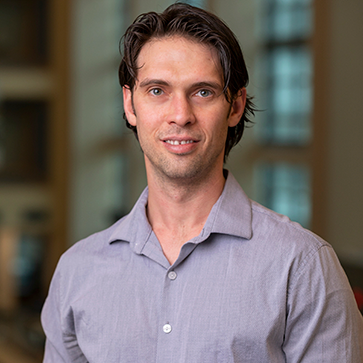Goldfeld's research interests include optimal transport theory, information theory, mathematical statistics, and applied probability. He develops mathematical tools for the design and analysis of modern inference and learning systems, with the goal of devising algorithms that are accurate, scalable, robust, private, and fair.
Many learning tasks, from generative modeling to style transfer, can be distilled into a question of comparing or deriving transformations between complex, high-dimensional probability distributions. The key mathematical objects that quantify this comparison are statistical divergences, which are discrepancy measures between probability distributions. Popular classes of divergences include Wasserstein distances (rooted in optimal transport theory), f-divergences, integral probability metrics, and more. Despite their potency for modeling, analyzing, and designing learning algorithms, such divergences typically suffer from the computational and statistical hardness issues, especially in high-dimensional settings. To alleviate this impasse, Glodfeld's group explores new regularization paradigms for statistical divergences that preserve their meaningful structure and compatibility for inference while enabling statistical and computational scalability. Research questions include: (i) structural, topological, and geometric properties of regularized divergences (e.g., via smoothing, slicing, entropic penalty, etc.); (ii) high-dimensional statistical questions, such as empirical convergence rates, neural estimation techniques, robust estimation, limit distribution theory, etc.; and (iii) learning-theoretic applications to generative modeling, barycenter computation/estimation, testing, anomaly detection, etc.
Another focus is developing information-theoretic tools for measuring the flow of information through deep neural networks. The goal here is to explain the process by which deep nets progressively build representations of data—from crude and over-redundant representations in shallow layers to highly-clustered and interpretable ones in deeper layers—and to give the designer more control over that process. To that end, the project develops efficient estimators of information measures over the network (e.g., via built-in dimensionality reduction techniques). Such estimators also lead to new visualization, optimization, and pruning methods of deep neural networks. New instance-dependent generalization bounds based on information measures are also of interest.
Additional research trajectories include causal inference and relations to the directed information functional, differential privacy, physical layer security, high-dimensional nonparametric estimation, and interacting particle systems.


